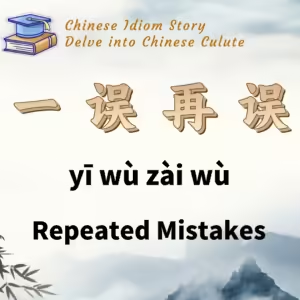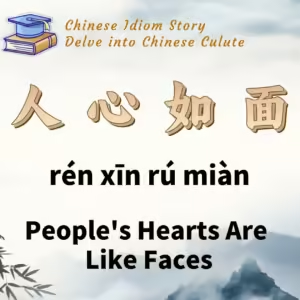
Chinese Idiom: 载舟覆舟 (Zai Zhou Fu Zhou)
English Translation: The Water that Carries the Boat Can Also Capsize It
pīn yīn: zài zhōu fù zhōu
Idiom Meaning: This idiom means that the people are like water; they can support a boat (representing authority) or capsize it, highlighting the importance of winning the hearts of the people.
Historical Source: The phrase comes from Wei Zheng’s Ten Thoughts on Advising Emperor Taizong (《谏太宗十思疏》) during the Tang Dynasty.
Idiom Story:
In his work, Wei Zheng employed metaphorical language to convey the main message of the piece, advising Emperor Taizong to be vigilant and humble, emphasizing the importance of earning the people’s trust.
In the relevant section of the text, Wei Zheng stated:
“In history, many rulers, endowed with the mandate of heaven, start off well, but few can maintain their success until the end. Is it easier to gain power than to retain it? The answer lies in addressing deep-seated worries. One must sincerely care for their subjects during difficult times; once success is achieved, they often become indulgent and arrogant. If treated sincerely, even enemies can unite; if treated with contempt, even kin become strangers. Relying solely on harsh punishments or threats, people may only seek to avoid punishment without feeling gratitude. Resentment does not arise from size but from the collective feelings of the people. Like water, they can carry the boat or capsize it, so it is crucial to be cautious.”
This passage underscores that while rulers may initially succeed, maintaining that success requires genuine care and respect for the people. If they become complacent or arrogant, they risk alienating the very subjects they govern, leading to resentment and potential rebellion.
The idiom “载舟覆舟” serves as a reminder of the power of the people’s sentiment and the necessity for leaders to remain vigilant and humble in their rule. It highlights that the support of the people is essential for lasting governance, and any neglect can lead to disastrous consequences.






